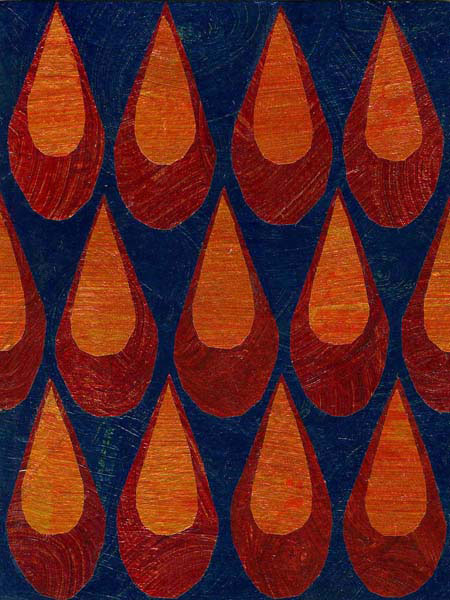
Fire and Breath © Jan L. Richardson
In my junior year of high school, I landed in the hospital several times because one of my lungs kept collapsing. It wasn’t due to an injury; each collapse was spontaneous, owing to a genetic predisposition not uncommon among tall, skinny girls. (It often comes accessorized with a mild heart murmur, something I didn’t know until a doctor picked it up in a routine exam a few years ago.) Normally a really healthy kid, I was concerned about the inordinate level of excitement it stirred in my doctor’s office. After he had his nurses come and listen to my chest, my doctor explained that I’d have to go to the hospital to get my lung reinflated. I imagined something like a bicycle pump, a quick procedure that would have me out in time to take a major test the next day. Instead, I spent the next five days getting intimately acquainted with a chest tube and the oddities of morphine.
The trip to the hospital provided only a temporary fix for my lung. When a partial collapse the next month was followed by a complete collapse the month after that, I knew the next step would be more drastic. The chest tube was put back in, and this time, they poured tetracycline down it. A recently developed alternative to surgery, tetracycline served to form scar tissue to keep the lung intact and prevent it from collapsing again.
Painkillers and local anesthesia only do so much to dull the sensation of acid flowing over your innards. Mostly I remember unbelievable pressure on my chest, the sensation that I could not breathe, would never do it again, that my body would not remember how. But in the wake of the fire came breath: breath that came without assistance, breath that sustained itself and did not seep out. In time I came to understand the experience as a gift, one marked by the presence of God, who did not inflict it upon me but used it as an occasion of transformation, an experience of initiation. With the fire and the breath came knowledge: I would never be in my body in the same way. It altered how I experienced my own body, and it changed how I would engage people whose bodies are vulnerable. A good gift for a girl who would grow up to be a pastor.
That initiation of fire and breath has been much on my mind as the day of Pentecost approaches. A defining day in the life of the early church, Pentecost finds its roots in the Jewish tradition, where it is called Shavuot or the Festival of Weeks. Falling fifty days after Passover, Shavuot is a harvest festival and also commemorates the giving of the Torah at Mount Sinai. Acts 2.1-21 tells us it is on this festival day that the followers of Jesus are “all together in one place” when the Spirit appears. It arrives as a rushing wind, filling them, in-spiring them, causing them to draw breath and speak. The scene at Pentecost offers a brilliant display of how in Greek, as in Hebrew, the word for Spirit, wind, and breath is the same: pneuma (In Hebrew, ruach).
Along with the wind comes fire, a symbol that stirs our collective memory of the God whose transforming presence has so often been marked by flames. Think of Moses and the burning bush, the column of fire that led the people of Israel through the wilderness, the temple fire that consumed the sacrificial offerings. “For the Lord your God is a devouring fire,” Deuteronomy 4.24 tells us. In contemporary culture, we most often experience fire as a contained, controlled, gentle force. Yet the fires of Pentecost are not the tame flames of birthday candles or a cozy winter’s hearth; the fires of Pentecost are a sign of the God who resists our every attempt to domesticate the divine and to control how the holy will work.
For the followers of Jesus, the day of Pentecost becomes an occasion of profound initiation. With the gift of spirit and flame, the community that Jesus had formed is now fired, prepared, propelled into a new stage of its journey. Like a vessel in the furnace of a kiln, the followers of Jesus receive the transformation they need. They are no longer a group of believers but rather a catalyzed community, a body that, enlivened by the Spirit, will endure and continue the work of Christ.
As those followers knew, we can’t always plan our moments of initiation. If we cannot control God, it follows that we cannot control the ways that God beckons or, sometimes, seemingly flings us across a new threshold. We can work to make ourselves available when it happens, but we don’t always get to choose our initiations.
In her book Reinventing Eve, Kim Chernin describes initiation this way:
Initiation is not a predictable process. It moves forward fitfully, through moments of clear seeing, dramatic episodes of feeling, subtle intuitions, vague contemplative states. Dreams arrive, bringing guidance we frequently cannot accept. Years pass, during which we know that we are involved in something that cannot easily be named. We wake to a sense of confusion, know that we are in dangerous conflict, cannot define the nature of what troubles us. All change is like this. It circles around, leads us a merry chase, starts us out it seems all over again from where we were in the first place. And then suddenly, when we least expect it, something opens a door, discovers a threshold, shoves us across.
At Pentecost, initiation occurred not only at the individual level (“and a tongue rested on each of them”) but also at the corporate level. The outpouring of the Spirit upon the whole community reminds us that we are not on an individual journey but a shared one. God calls us, compels us, to attend to the Spirit in one another.
The celebration of Pentecost beckons us to keep breathing. It challenges us to keep ourselves open to the Spirit who seeks us. The Spirit that, in the beginning, brooded over the chaos and brought forth creation; the Spirit that drenched the community with fire and breath on the day of Pentecost: this same Spirit desires to dwell within us and among us. Amidst the brokenness and chaos and pain that sometimes come with being in community, the Spirit searches for places to breathe in us, to transform us, to knit us together more deeply and wholly as the body of Christ, and to send us forth into the world.
As we approach Pentecost, what occasions of initiation do you remember? Sought or unbidden, how did those experiences alter you, transform you, change who you are in this world? How did they deepen your understanding of yourself, your community, and how God desires to breathe through you? How do you continue to open yourself to the work of the Spirit in you and in those around you?
Blessings to you in these days of celebration. May we keep breathing. May we blaze.
[To use this artwork, please visit this page at janrichardsonimages.com. Your use of janrichardsonimages.com helps make the ministry of The Painted Prayerbook possible. Thank you!]

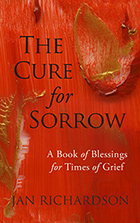
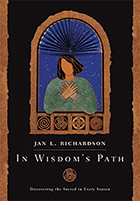
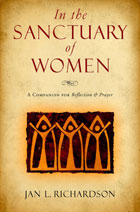
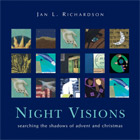
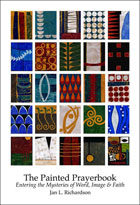
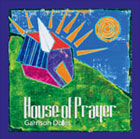
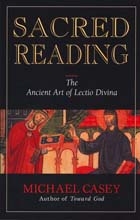
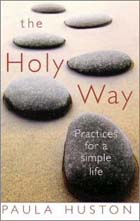
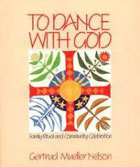
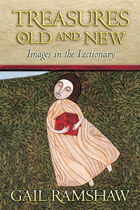
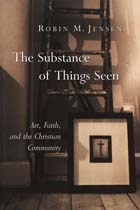
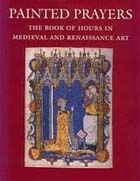
May 5, 2008 at 10:21 AM |
Jan, I was happy to see your link at Text week for Pentecost. I feel I should comment more often as your blog is one of my “must-reads” for sermon prep. I love both your visual art and your reflections. Thank you.
May 5, 2008 at 11:51 AM |
Many thanks, Kate! I am so grateful to Jenee Woodard for her wondrous ministry via The Text This Week at textweek.com. Thank you for your own blessed blog.
May 5, 2008 at 1:36 PM |
While I am still personally wonderfully and spiritually anchored considering ‘where I dwell’, I do not resist the tug on the invisible thread that allows me to enjoy each additional post, word and image.
Your creation for Penecost is, to coin a phrase, breath-taking, and begs a long-ago question: why not become all flame?
Indeed….
Thanks for your offerings, Jan.
May 6, 2008 at 10:32 AM |
One truth I perceive about the flame, the fire, is if I/we get up the nerve to turn and face it, or we are turned to face it, I/we can no longer coast in nuetral. The prophets faced this fire and then spoke it and lived in…and died for it sometimes. Who can take these risks? But not taking them, or some of them, leaves me in the gray neutrality, a poison that can seep throughout my being, drop by drop, day by day. On a systemic scale, what does that do to our churches, our country? On a smaller scale, what price do I pay?
May 6, 2008 at 4:59 PM |
My mother died ten years ago next month, suffering the slow suffocation of emphysema. For several years, we could only sit with her as she gasped for every breath — literally dying before our eyes. I can never again take breathing for granted. I thank God every day when I can inhale a healthy dose of fresh air each morning as the dog and I step out for our morning walk. Pentecost does indeed challenge us to keep breathing, but I am very aware that many churches are gasping for breath today.
May 6, 2008 at 8:39 PM |
So glad of the link to your blog – I had not discovered it before although I read your book on Advent and Christmas every year. The connection between the journey from the burning bush to freedom and the Spirit coming at Pentecost reminds me that we are given the fire not just for ourselves but the warm the community.
May 8, 2008 at 7:53 PM |
The movement of the Spirit led me to your site as I prepare a sermon for Pentecost and Mother’s Day at the Swedenborgian Church in El Cerrito, California. How wonderful to read your reflection, and others’ comments. I am grateful to find this. My working title is “Hearts on Fire, Burning Bright.” God’s love and Mother’s nurture, and the spirit of love’s empowerment. How we pass both on through what we love, who we love, how we love, and allowing ourselves to be loved back. Years ago I researched the spiritual dimension of work, what I call “Work Spirit.” Doing work we are meant to do is another kind of fire to kindle and keep alive. Good wishes to you.
May 31, 2009 at 6:33 AM |
Thank you again, Jan. The quote from Kim Chernin was especially powerful to me.